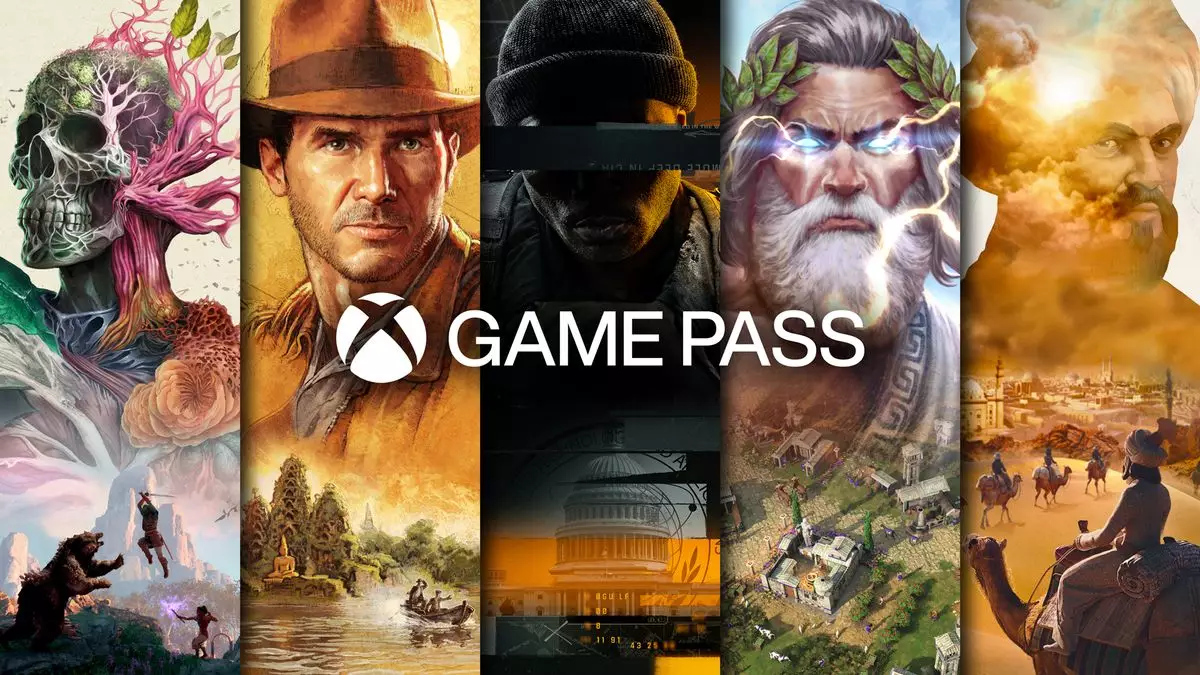The gaming landscape is witnessing a significant transformation as Microsoft Gaming CEO Phil Spencer advocates for a more inclusive approach to game distribution. Gone are the days of fierce rivalry between Xbox and PlayStation, with Spencer’s recent statements indicating a shift in strategy. Rather than attempting to lure players exclusively to Xbox consoles, Microsoft is now focusing on broadening the reach of its games across various platforms, including Nintendo Switch and PlayStation 5. This pivot highlights a growing recognition that in an increasingly interconnected gaming community, collaboration may yield greater benefits than competition.
Under Spencer’s leadership, there has been a noticeable trend of porting popular titles to rival consoles. Games like “Grounded” and “Sea of Thieves” have crossed the borders of their original Xbox domains, signaling Microsoft’s willingness to embrace a diverse gaming ecosystem. Upcoming titles, such as “Forza Horizon 5” and “Indiana Jones and the Great Circle,” are also set to make their way to other systems, reflecting a robust commitment to accessibility.
Spencer’s strategic rationale is not solely based on altruism; the financial insights are equally compelling. During an interview with Xbox Era, he articulated that although Microsoft retains only 70% of the revenue from sales on competing consoles, compared to 100% from its own platform, the focus remains on reaching a broader audience. “Let’s just allow more people to play,” he stated, demonstrating an understanding that expanding the player base can enhance the overall value of the gaming experience.
One of the most profound revelations from Spencer’s comments is his acknowledgment of the loyal fan bases entrenched in various gaming ecosystems. By stating, “I’m not trying to move them all over to Xbox anymore,” Spencer underscores a shift in priorities. It’s not about monopolizing the gaming market but rather about engaging with fans of Microsoft’s franchises who may not own an Xbox console. This perspective encourages a more community-focused approach to gaming, prioritizing player enjoyment over brand allegiance.
Spencer’s belief in allowing players to access games regardless of their preferred platforms reflects an understanding that the value of gaming extends beyond profits. It emphasizes a commitment to creating a positive gaming experience for all, which may, in turn, foster deeper connections with Microsoft’s offerings in the long term.
Another noteworthy shift in strategy is Microsoft’s commitment to transparency regarding game availability. Rather than obscuring the presence of PlayStation and Nintendo logos in promotional materials, Spencer advocates for clear communication with gamers. His mantra, “people should know the storefronts where they can get our games,” represents a commitment to honesty in marketing. This approach counters the historical tendency of companies to create exclusivity around their products and instead positions Microsoft as a player that values consumer choice.
This attitude can be seen as a bold move in an industry often plagued by exclusivity contracts and competitive gatekeeping, suggesting that Microsoft is willing to challenge norms for the sake of a more authentic gaming environment.
While Spencer has championed this inclusive strategy, he has also reassured fans of a continued commitment to Xbox hardware. His acknowledgment of a future console and speculations regarding a next-generation handheld device indicate that Microsoft retains its dedication to its own gaming systems. This dual focus—supporting native hardware while simultaneously promoting inclusivity—offers a comprehensive strategy that may well redefine Microsoft’s identity within the industry.
As Microsoft embraces this new paradigm, it creates opportunities for innovation and player engagement that could reshape the gaming landscape for the better. In a world where gaming is increasingly about shared experiences, prioritizing collaboration and accessibility may just be the key to thriving in a competitive market.
Phil Spencer’s insights reveal a vision for a more equitable gaming future, prioritizing community and inclusivity over traditional competitive models. This refreshing approach not only speaks to the changing dynamics of the gaming industry but also sets a precedent for what can be achieved when companies choose collaboration over contention.


Leave a Reply